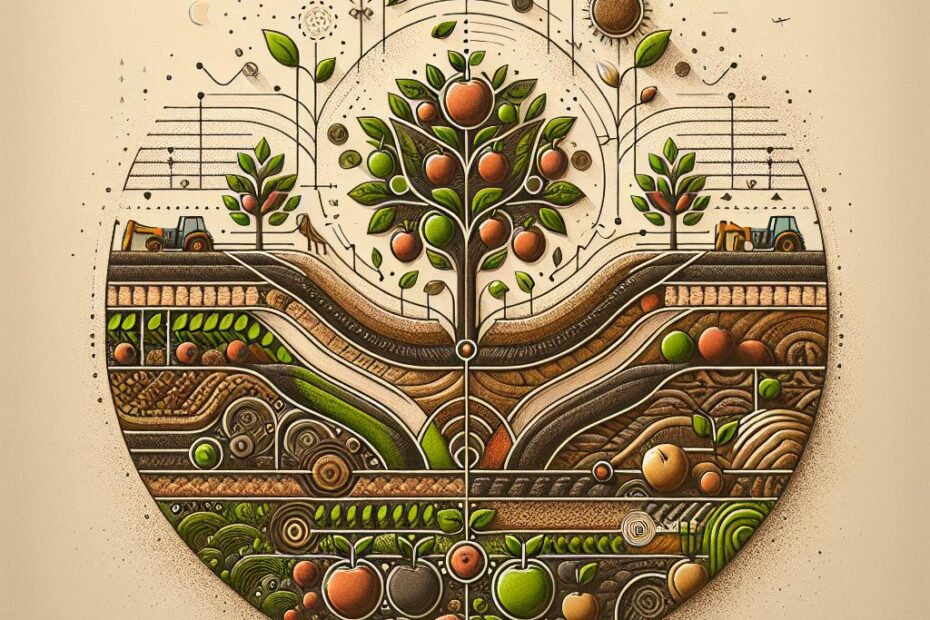Best Fruit Trees for Clay Soil with Poor Drainage
If you have clay soil in your garden and struggle with poor drainage, selecting the right fruit trees for your growing conditions is crucial. Clay soil can be heavy and compacted, making it difficult for water to drain properly and causing potential issues for plant roots. However, with the right fruit tree selection and some additional care, you can still enjoy a bountiful harvest even in less than ideal soil conditions.
Understanding Clay Soil and Poor Drainage
Clay soil is composed of tiny particles that are closely packed together, leaving little room for water to penetrate or drain. This can lead to waterlogged conditions, which are not ideal for most plants, especially fruit trees. Poor drainage can cause root rot, nutrient deficiencies, and overall stress on the tree, resulting in decreased growth and fruit production.
When selecting fruit trees for clay soil with poor drainage, it’s important to choose varieties that can tolerate these conditions and thrive despite the challenges. Here are some fruit trees that are well-suited to clay soil and can handle poor drainage:
Best Fruit Trees for Clay Soil and Poor Drainage
-
Apple Trees – Apple trees are a popular choice for clay soil as they are adaptable and can tolerate a wide range of soil types. They prefer well-drained soil but can still thrive in clay with proper care.
-
Pear Trees – Pear trees are another excellent option for clay soil with poor drainage. They have shallow root systems that are less affected by waterlogged conditions compared to other fruit trees.
-
Cherry Trees – Cherry trees can also perform well in clay soil with poor drainage. They are relatively resilient and can adapt to less than ideal growing conditions.
-
Plum Trees – Plum trees are hardy and can handle clay soil as long as it’s not overly waterlogged. They produce delicious fruits and are a great addition to any garden.
-
Fig Trees – Fig trees are drought-tolerant and can thrive in clay soil with poor drainage. They are low-maintenance and produce sweet, nutritious fruits.
Tips for Growing Fruit Trees in Clay Soil
- Improve Soil Drainage – Consider adding organic matter such as compost or aged manure to improve soil structure and drainage.
- Plant Trees on Mounds – Create raised beds or mounds to help prevent waterlogging and provide better drainage for fruit trees.
- Choose Dwarf Varieties – Dwarf fruit trees have shallower root systems and are better suited to clay soil with poor drainage.
- Mulch Frequently – Mulching around fruit trees can help retain moisture, regulate soil temperature, and improve overall soil health.
Benefits of Growing Fruit Trees in Clay Soil
- Increased Water Retention – Clay soil has the advantage of retaining moisture, which can be beneficial during dry periods.
- Nutrient-rich Soil – Clay soil is naturally rich in nutrients, providing a fertile environment for fruit trees to grow and thrive.
- Long-lasting Results – Once clay soil is properly amended and managed, it can provide a stable and productive growing medium for fruit trees for years to come.
Case Study: Growing Apple Trees in Clay Soil
John Smith, a gardening enthusiast, decided to plant apple trees in his backyard, despite having heavy clay soil with poor drainage. He followed the tips mentioned above, including adding compost to the soil, planting the trees on raised beds, and mulching regularly. Despite the challenges, his apple trees flourished and produced a bountiful harvest each year.
Conclusion
While clay soil with poor drainage can present challenges, selecting the right fruit trees and implementing proper care techniques can ensure successful growth and fruit production. By choosing varieties that are well-suited to these conditions and making adjustments to improve soil structure and drainage, you can enjoy a thriving fruit orchard even in less than ideal soil conditions. Happy planting!
